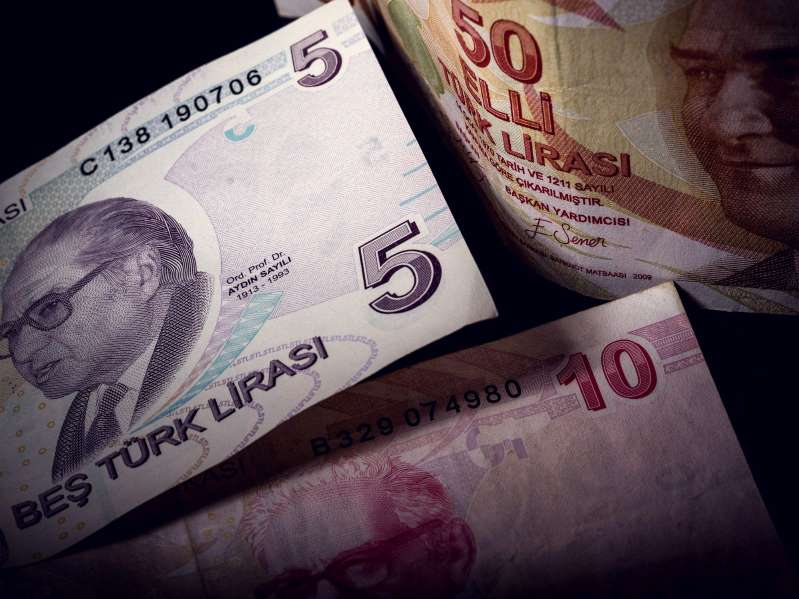(Reuters) – Turkey’s lira declined more than 0.5% on Tuesday to its weakest level in two months, as concern over relations with the United States lingered and a lower real yield on the currency lessened its allure.
The lira has weakened some 10% this year, because Ankara’s ties with Washington have been strained over a host of issues, including policy differences in Syria and Turkey’s purchase of an S-400 missile defence system.
The currency traded at 5.8820 against the dollar at 1434 GMT, weakening some 0.6% from Monday’s close of 5.8480. Earlier, it reached 5.8845, its weakest level since Oct. 17.
The U.S. Congress has moved to impose sanctions on Ankara over its purchase of the missile system and military operations in northeast Syria against the Kurdish YPG militia, a main U.S. ally in the fight against Islamic State that Ankara views as a terrorist group.
Investors are concerned the threat of U.S. sanctions will persist through the coming year, as real interest rates have narrowed because of due central bank rate cuts, said Phoenix Kalen, strategist at Societe Generale.
“Even though it is unlikely that these bills will eventually materialise in the form of highly punitive sanctions against Turkey, their presence alone weighs on market sentiment,” she said.
“Additionally, these developments appear at a time when Turkey is eroding through its real interest rate buffer. Turkish policy makers no longer have as much cushion to absorb external sources of stress,” Kalen said.
Turkey’s central bank has cut its policy rate by 12 percentage points to 12% since July this year. Taking into account that annual inflation stood at 10.56% in November, the real rate stands at 1.4%, below those on other emerging-market currencies.
Kalen added that Turkish authorities supporting measures to promote lending was also cause for concern — it could lead to higher amounts of leverage and economic dependence on short-term capital flows.



